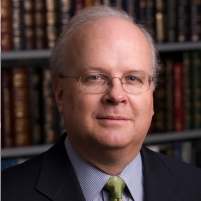Forget Super PACs; Big Campaign Financing is Coming from “Social Welfare” Nonprofits
Wednesday, June 20, 2012
 Karl Rove, social welfare advocate
Karl Rove, social welfare advocate
Move over super PACs and make way for the “social welfare” organizations.
As hyped and deep-pocketed super PACs are, their spending power was eclipsed during the 2010 election, according to the Center for Public Integrity and the Center for Responsive Politics.
During the previous campaign, super PACs doled out $65 million. But more than 100 “social welfare” groups—nonprofits organized under section 501(c)(4) of the U.S. tax code—spent $95 million on political ads and other expenditures.
Unlike the super PACs, which are required to release the names of their contributors, the nonprofits can keep their supporters hidden. Not surprisingly then, nearly 90% of their spending ($84 million) from two years ago was never tied to a donor on disclosure forms.
Conservatives were much more active in using “social welfare” groups in 2010, outspending liberal counterparts $78 million to $16 million with just three groups, the American Action Network, Crossroads Grassroots Policy Strategies and the American Future Fund, accounting for more than half the total. The first was founded by former Minnesota Senator Norm Coleman; the second was co-founded by George W. Bush advisor Karl Rove; and the third was created by GOP strategist Nick Ryan.
In the current election, super PACs have outspent nonprofits, $120 million to $9 million. “But with clearly defined candidates for both the White House and in most congressional races, nonprofits are expected to become more active,” wrote Michael Beckel of iWatch News.
One example cited was billionaire casino owner Sheldon Adelson, who has already pledged to give $35 million to three conservative nonprofit groups.
Social welfare organizations are being viewed with suspicion by the Internal Revenue Service (IRS). According to the IRS, “The promotion of social welfare does not include any unrelated business activities or intervention in political campaigns on behalf of or in opposition to any candidate for public office.”
Also at issue is the suspicion that corporations are donating to political super PACs and then deducting their contributions as business expenses.
-Noel Brinkerhoff, David Wallechinsky
To Learn More:
Nonprofits Outspent Super Pacs in 2010, Trend May Continue (by Michael Beckel, iWatch News)
IRS Clashes with Conservative Campaign Groups Claiming Non-Profit Status (by David Wallechinsky, AllGov)
- Top Stories
- Unusual News
- Where is the Money Going?
- Controversies
- U.S. and the World
- Appointments and Resignations
- Latest News
- Trump Orders ICE and Border Patrol to Kill More Protestors
- Trump Renames National Football League National Trump League
- Trump to Stop Deportations If…
- Trump Denounces World Series
- What If China Invaded the United States?






Comments